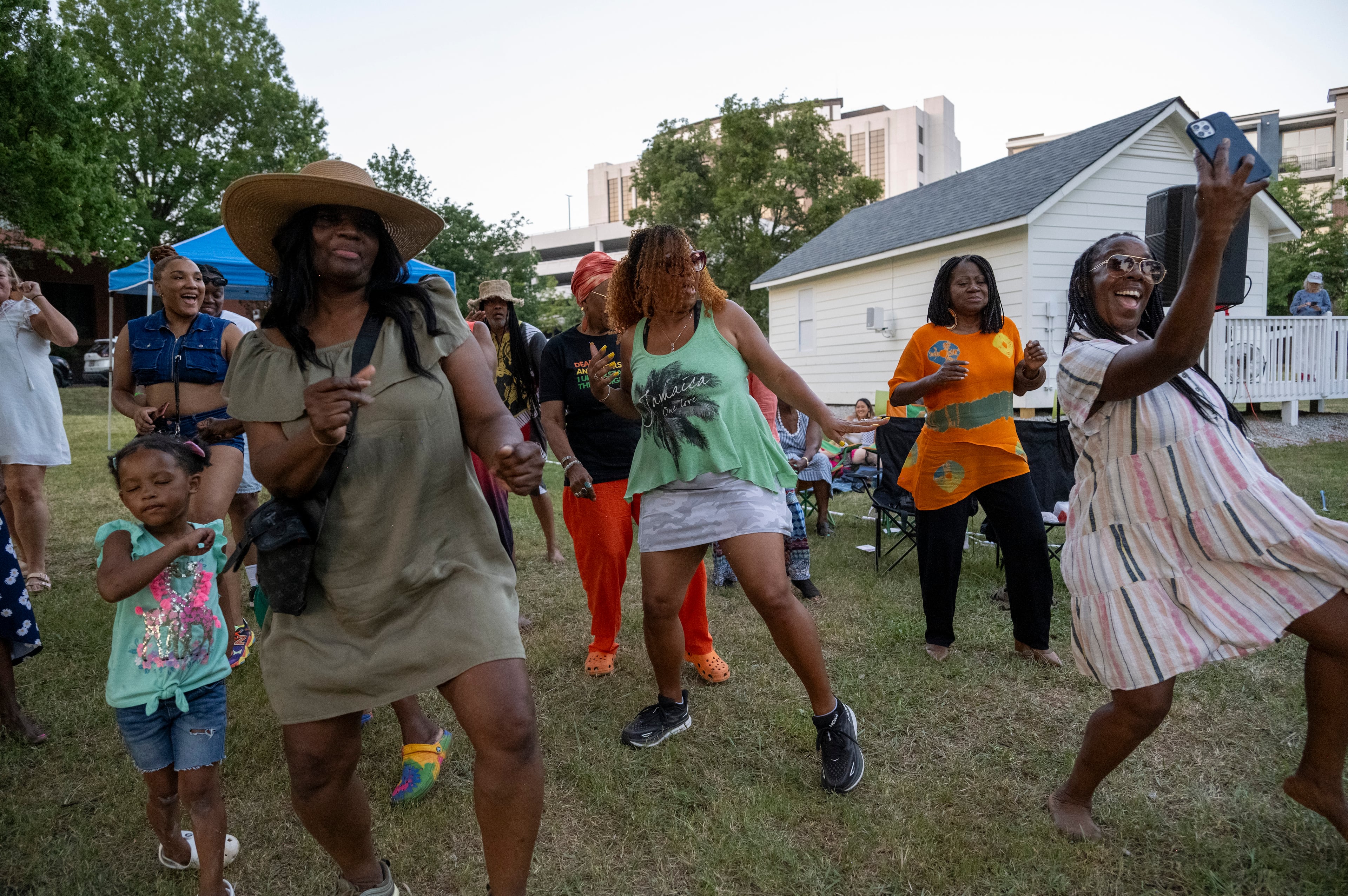OPINION: Why Jesse Jackson’s presence at Arbery trial was inevitable
It was as if attorney Kevin Gough fired up a klieg light with the Bat-symbol outside the southeast Georgia courthouse and the Rev. Jesse Jackson saw it 1,000 miles away at his Chicago home.
Gough, the often-absurd attorney for defendant Roddie Bryan in the Ahmaud Arbery murder trial, last week bashed a beehive when he objected to the Rev. Al Sharpton showing up in court with the victim’s mother. He said Sharpton, who is both famous and infamous, depending who you ask, came to either influence or intimidate the jury.
“If their pastor’s Al Sharpton right now, that’s fine, but then that’s it,” Gough told the judge. “We don’t want any more Black pastors coming in here.”
You just knew Jackson, who’s worked hard for 50 years to be an advocate for the downtrodden and fill the role of America’s most famous Black pastor, saw that as a call to throw on his jacket and head to the airport. The 80-year-old has been laid up a lot this year — with Parkinson’s, COVID-19 and a knock on the head from a fall two weeks ago — but Gough’s denunciation read like an engraved invitation.
The murder case against three white men charged with chasing down and killing Arbery, who was Black, is the nation’s latest racial crucible. Prosecutors allege the men hunted down Arbery because they were suspicious of a Black man running through their predominantly white neighborhood. The defense says they simply reacted to community fears of being under siege by criminals. It really wasn’t, but the threat of crime, even the thought of it, makes people hyped up. Go ask Buckhead secessionist leader Bill White.
The pulpit in African American churches has for generations been the backbone and rallying point in the fight against segregation, racism and injustice. Images of Black pastors leading marches or wielding bullhorns at the barricades has become Americana.
Sharpton’s arrival is one of the proceedings’ least surprising developments. The case has become an important event in the nation’s body politic, and the reverend has never been shy around cameras. His presence in the courtroom no doubt comforts Arbery’s family, showing them someone important cares enough to come down and speak on their behalf that a wrong has been committed.
Sharpton coming inside the courtroom shows that he really cares. And, of course, increases the chances he’ll appear on the evening news. His presence is a communique to the world that this is not just a murder case, this is something much more. This is probably not lost on jurors, although they knew coming in that this case was big and ugly. Sharpton’s presence is simply an exclamation point.
Last month, Gough asked the judge to limit protests around the courthouse, citing a “carnival-like” atmosphere. The judge turned him down, citing freedom of speech. Oddly, in that same town in 2004, a federal judge barred protesters from coming within a block of that courthouse in the sexual assault trial of Malachi York, leader of an especially nutty cult, the Nuwaubians.
Gough’s statement about “Black pastors” is part outrageous, part inartful. The judge shot him down, and Jason Sheffield, attorney for co-defendant Travis McMichael, chimed in, calling Gough’s comments “asinine.”
On Monday, Gough got what he asked for: Jesse Jackson, two-time presidential candidate and kahuna of Black preachers, plopped down in the spectators’ bench. Jackson later insisted “my moral obligation,” not Gough, spurred the visit.
Gough naturally had a conniption and asked the judge to toss Jackson.
“This is no different than bringing in police officers or uniformed prison guards in a small town where a young Black man has been accused of assaulting a law enforcement officer or corrections officer,” Gough argued, seeking a mistrial.
In 2017, a New York cop named Wayne Isaacs was tried in the shooting death of a man after a traffic altercation. A Black Lives Matter leader was ordered to not wear his BLM shirt in court. The man countered that uniformed cops sat in the spectators’ gallery and were influencing the jury. The uniformed cops stayed and the officer was acquitted.
Gough was again turned down and rebuked by the judge. His honor did previously forbid the wearing of attire bearing logos of BLM or other justice movements.
But this time, attorney Sheffield joined Gough’s cause, saying some jurors saw Jackson and “their faces changed — the emotion, the sympathy that they felt. And to see then, Mr. Reverend Jackson, whose autographed picture hung in my mother’s law office for two decades, who is the ultimate figure of fairness and justice and equality, to see that? I don’t think it gets any higher in terms of the impression that that makes.”
But this is Brunswick, not liberal Decatur. Eleven of the 12 jurors are white. So the impression is left to be seen. Jackson’s presence might just push them the defense’s way.



